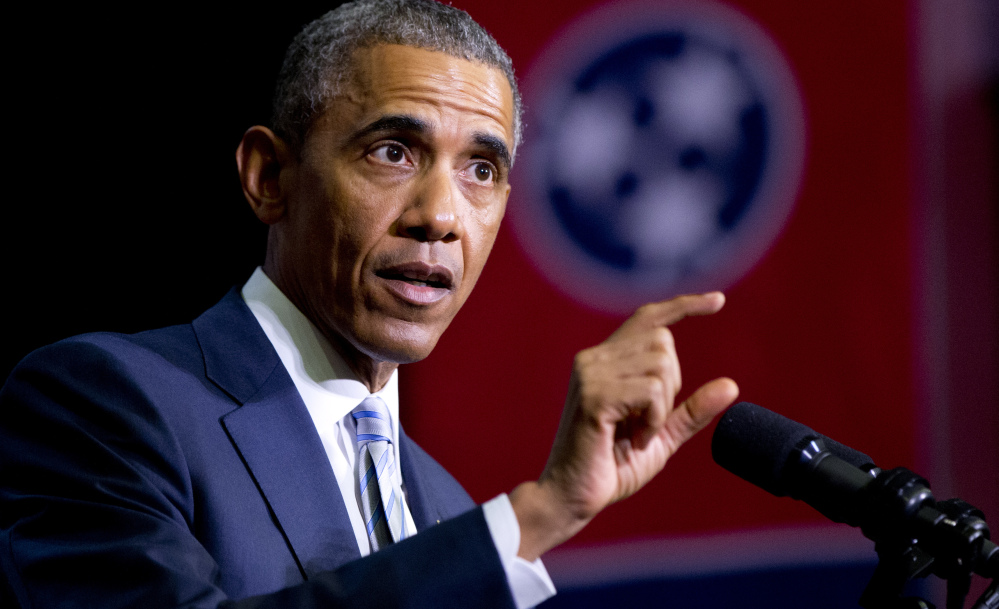A good job with a future usually requires a good education. As jobs for people with a high school diploma or less fade away, community colleges take on a more important role.
So we were pleased when President Obama announced his plan for a state-federal partnership to allow students who work hard and get good grades to attend community college for free. Students would come out of such a program with two years of debt-free credit toward a bachelor’s degree or an opportunity to enter the workforce with a certificate of training in a specific field.
Either way, it’s an enormous head start to getting a middle-class job. Maine’s congressional delegation should work hard to support this program. In the meantime, as Gov. LePage pointed out last week, Maine still has work to do to be able to get the most out of its community colleges.
It’s too difficult for students to transfer credits from the community college system into the state university system, especially in science and engineering fields. The promising Bridge Program, which helps high school students take college courses for credit, has never gotten past the pilot stage because of funding issues.
TOO MANY BARRIERS FOR STUDENTS
LePage’s solution to these problems was to call for the resignation of John Fitzsimmons, the president of the community college system. We don’t think that’s the solution, but agree with the governor that there are too many barriers for students moving through our educational systems.
Obama’s program makes sense, especially if it attracts students who would not otherwise enroll in college. If a student could make it to the third year of college without taking out a loan, we would be making real progress on college affordability and improving the skills of our workforce.
But community college is a good start only if it actually leads somewhere. The University of Maine System and the Maine Community College System have been talking for years about how to transfer credits, but it’s still not a seamless transition.
A committee has been meeting for the past 18 months to resolve differences. Those on the panel have come to an agreement on the transfer of general education credits – classes such as English composition and math – but are working through the complexities of determining which science and technology credits can be recognized. Committee members estimate they could be done by the end of this academic year.
CREDIT FOR COMMUNITY COLLEGE WORK
The sooner they can finish, the better. Economic studies show that a four-year degree correlates with much higher lifelong earnings than a two-year degree. Community college graduates who want to keep going should be able to get credit for their work.
Similar problems exist with the Bridge Program. A pilot program has shown the benefit of a fifth year of high school, in which students take college classes in a familiar setting. There is little dispute about the benefit of this option in a state with a workforce that trails the region in attainment of higher education. The only question is who should pay.
This is one the state should figure out this budget season. Like the wall between the community colleges and the university, the wall between K-12 education and higher education also needs to be knocked down. The stakes are too high for institutions to be protective of their turf.
Send questions/comments to the editors.



Success. Please wait for the page to reload. If the page does not reload within 5 seconds, please refresh the page.
Enter your email and password to access comments.
Hi, to comment on stories you must . This profile is in addition to your subscription and website login.
Already have a commenting profile? .
Invalid username/password.
Please check your email to confirm and complete your registration.
Only subscribers are eligible to post comments. Please subscribe or login first for digital access. Here’s why.
Use the form below to reset your password. When you've submitted your account email, we will send an email with a reset code.